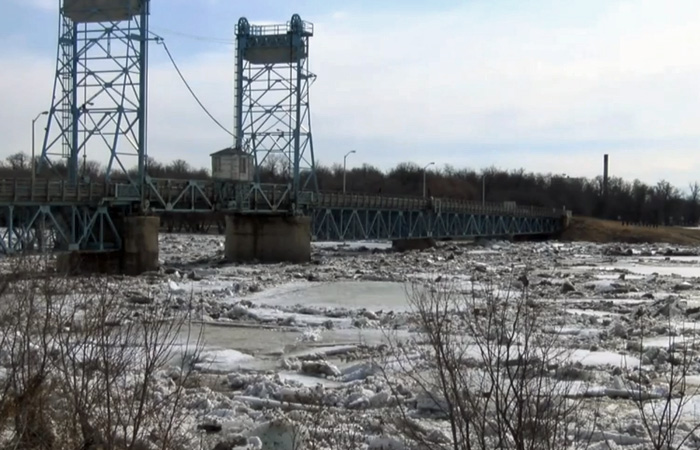Manitoba Transportation and Infrastructure’s Hydrologic Forecast Centre is advising the public that recent warm temperatures have initiated spring thaw and surface run-off has began in most southern and central Manitoba basins.
As the melt continues, river flows and levels are expected to increase in the next three to five days and ice on Manitoba’s lakes, rivers and creeks will weaken. Ice conditions can change rapidly without warning and Manitobans are reminded to keep off ice as the temperature continues to rise.
The flood forecast remains consistent with the spring outlook issued on March 22, which indicated a major flood risk for the Red River between Emerson and the Red River Floodway inlet.
The flood risk remains low to moderate in the Interlake region along the Fisher and Icelandic rivers, and along the Assiniboine River. The risk of spring flooding is generally low along several other rivers including the Souris, Roseau, Rat and Pembina rivers. Water levels are expected to remain below community and individual flood protection levels.
The flood protection level of community dikes and individual flood protection works in the Red River basin are higher than predicted flood levels and are expected to protect communities and properties in the region.
There is also a low risk of flooding for most other Manitoba basins including the Saskatchewan River, Whiteshell lakes area and northern Manitoba. With the exceptions of Dauphin Lake and Lake St. Martin, most Manitoba lakes, including Lake Winnipeg and Lake Manitoba, are projected to remain within operating ranges after the spring run-off.
The forecast centre is monitoring a precipitation system that will likely affect southeastern Manitoba, the Red River basin in the U.S., and the Lake of the Woods basin in Ontario. However, at this time, forecasted precipitation is unlikely to have a significant effect on the forecasted flows and levels in Manitoba basins.
As always, the risk of flooding could change in any of the basins depending on weather conditions in the next few weeks.
Operation of the Red River Floodway is expected this spring to reduce water levels within Winnipeg. Operation of the Portage Diversion is also anticipated to minimize and reduce the effects of ice jamming on the Assiniboine River east of Portage la Prairie and control river levels in Winnipeg and areas along the Assiniboine River downstream of Portage la Prairie.
The Manitoba Emergency Measures Organization (EMO) continues to work with all local authorities and emergency management partners to provide guidance and support to prepare and respond to the spring flood. This includes reviewing existing emergency plans, information sharing and preparing resources used in flood response. Additionally, Manitoba EMO continues to work with Indigenous Services Canada to support its response measures with First Nation communities.


